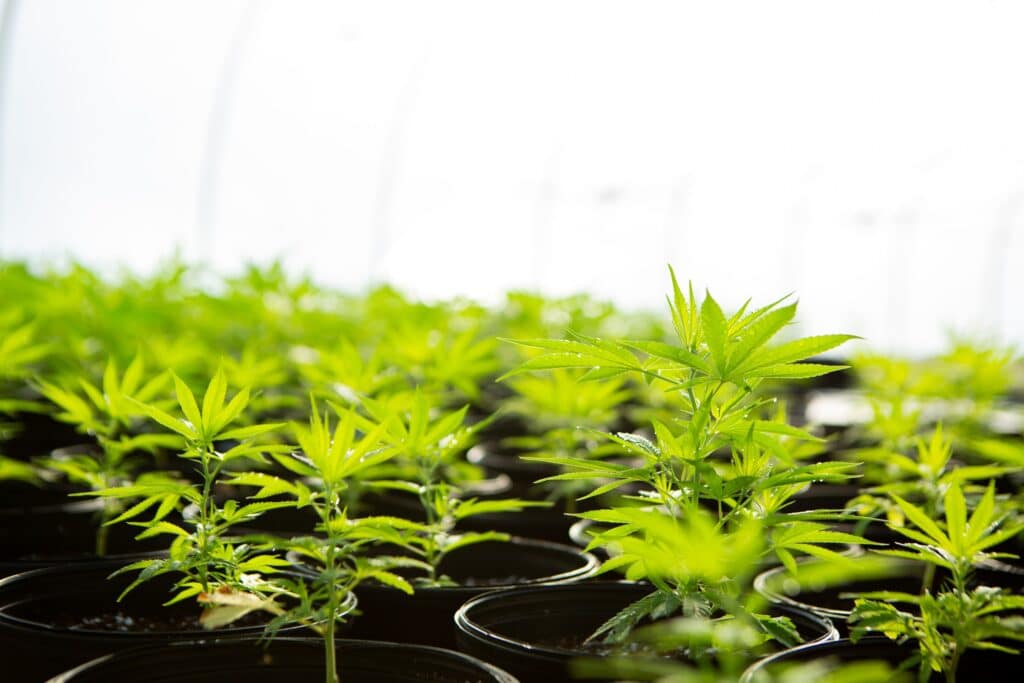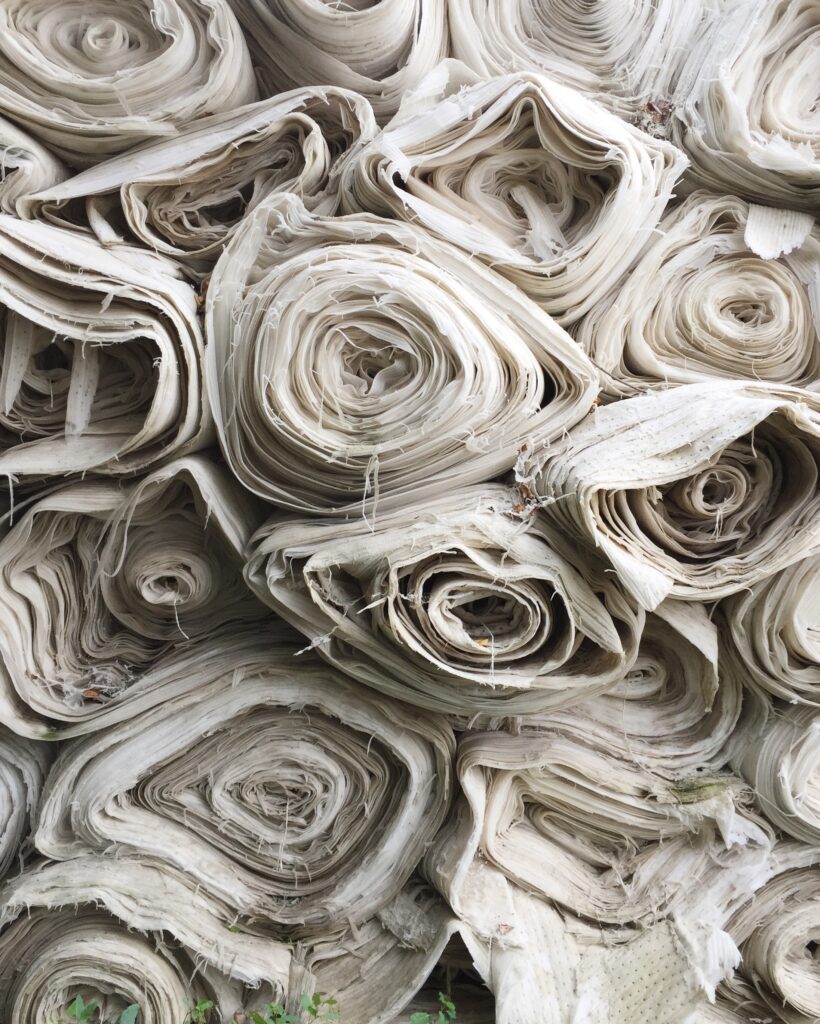Hemp fibres are used worldwide in manufacturing for several commercial applications, from paper to textiles, clothing, paint, insulation, and biodegradable plastics. Hemp was first used to make fibres over 50,000 years ago, perhaps longer, and it has a wide range of characteristics that has seen it through to be one of the most popular natural materials in the world.
What is Hemp?
Hemp is one of the fastest-growing, most renewable plants in the world. It’s one of the oldest domesticated crops we know of, used for several thousand years to make paper, textiles, and cordage.

The material derives from cannabis plants, which have several different elements. Both hemp and marijuana come from the same species of cannabis. However, hemp is very different to marijuana, containing less than 0.3 per cent of the cannabinoid molecule tetrahydrocannabinol (THC), a considerable amount less than the percentage in marijuana. Therefore, hemp has no psychoactive effects.
What is Hemp Used For?
Hemp has been grown as a renewable source for many years and is applied to thousands of everyday products and materials such as biofuel, clothing, food, paint, shoes, and even speciality papers such as banknotes and cigarette papers.

Hemp seeds contain fats, proteins and other chemicals that have a variety of health benefits. People use hemp to help with health conditions, including arthritis, eczema, high cholesterol, and muscle and joint pain.
The plant fibres also act as an alternative to petroleum products, producing two different types of biofuels.
Hemp is also known for manufacturing breathable construction materials, such as a type of concrete and insulation.
What are the Benefits of Hemp?
In manufacturing, hemp has a variety of beneficial characteristics, including:
- A renewable material due to its fast-growing and large yields
- Environmentally friendly
- No insecticides or pesticides
- Hemp is recyclable
- Slow to decompose
- High tear resistance
- High tensile strength
- No discolouration
- 100% natural
- Strands are 4 to 5 times longer than wood fibre
- Strong, long-lasting, and durable
What are Hemp Fibres?
Hemp fibres are multicellular, like other bast fibres from plant stems. Hemp grows rapidly, yielding more fibre than cotton and flax, hence why hemp is used for several applications commercially and industrially. Goonvean Fibres supplies hemp fibres in the following forms:
Short Cut Hemp Fibres
Our short cut hemp fibres are favoured for their high tensile strength, tear resilience and durability, and are suitable for a variety of commercial and industrial applications.

Milled Hemp Fibres (Flock)
Our milled hemp fibres, also known as flock, are ground to strengthen products. Milled hemp fibres are commonly used to manufacture paper, adding excellent durability to paper products. An acre of hemp produces four times the amount of pulp for paper that trees produce in a 20-year cycle.
How is Hemp Good for the Planet?
Hemp growing and cultivation have minimal environmental impacts and are known for being quite beneficial to the environment. It grows rapidly and in large amounts, doesn’t require any chemical pesticides or fertilizers, replenishes nutrients in the soil, and requires little water.
The plant is known for being nature’s purifier, capturing carbon dioxide in the air and cleaning it. For every tonne of hemp produced, 1.63 tonnes of carbon dioxide are removed from the atmosphere. Hemp also helps regenerate soil because of all the nutrients it contains within the plant.
—
Goonvean Fibres supply the finest hemp fibres, short cut and milled (flock). Find out more or order a sample today. Alternatively, get in touch with us.


